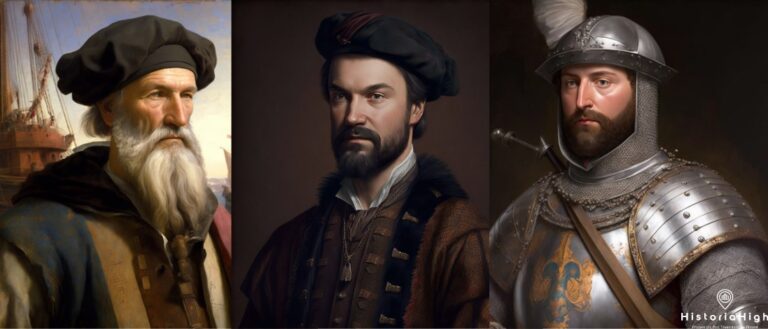
Early Explorers in North America
After Christopher Columbus sailed in 1492, other European countries wanted land and wealth in the Americas. Spain, England, and France all sent explorers across the Atlantic. Some searched for gold. Others looked for a trade route to Asia. Their journeys changed North America forever.
John Cabot
In 1497, an Italian sailor named John Cabot sailed for England. Like Columbus, he hoped to find a route to Asia by sailing west.
Instead, Cabot reached the coast of Newfoundland in present day Canada. He claimed the land for England. Although he did not find gold or spices, his voyage gave England a reason to explore and later settle in North America.
Cabot’s journey helped begin England’s interest in building colonies in the New World.
Jacques Cartier
In 1534, Jacques Cartier sailed for France. He explored the St. Lawrence River in present day Canada. Cartier believed the river might lead to Asia.
He met Indigenous peoples, including the Huron and Iroquois. Cartier claimed land for France and returned several times. He did not find the riches he hoped for, but his voyages helped France begin its empire in North America.
The French would later build settlements in Canada and develop strong trade relationships, especially in the fur trade.
Hernando de Soto
While England and France explored the north, Spain continued exploring the south. In 1539, Spanish explorer Hernando de Soto led a large expedition through what is now the southeastern United States.
De Soto and his men traveled through Florida, Georgia, Alabama, Mississippi, and beyond. They were searching for gold and new empires like the Aztecs.
In 1541, de Soto became the first known European to cross the Mississippi River. His expedition was harsh and violent. His men often demanded food and supplies from Indigenous villages. Many Native communities suffered from violence and from diseases brought by the Europeans.
De Soto died in 1542 during the journey. His expedition failed to find great wealth, but it showed Spain the vast lands of the Southeast.
Why It Matters
John Cabot, Jacques Cartier, and Hernando de Soto explored different parts of North America. They did not find the riches they expected, but their voyages helped their countries claim land and begin colonization.
Their journeys increased competition between European nations. They also brought lasting changes to Indigenous peoples through disease, conflict, and trade.
These early explorations helped shape the future of North America. They set the stage for colonization, settlement, and the growth of new nations.